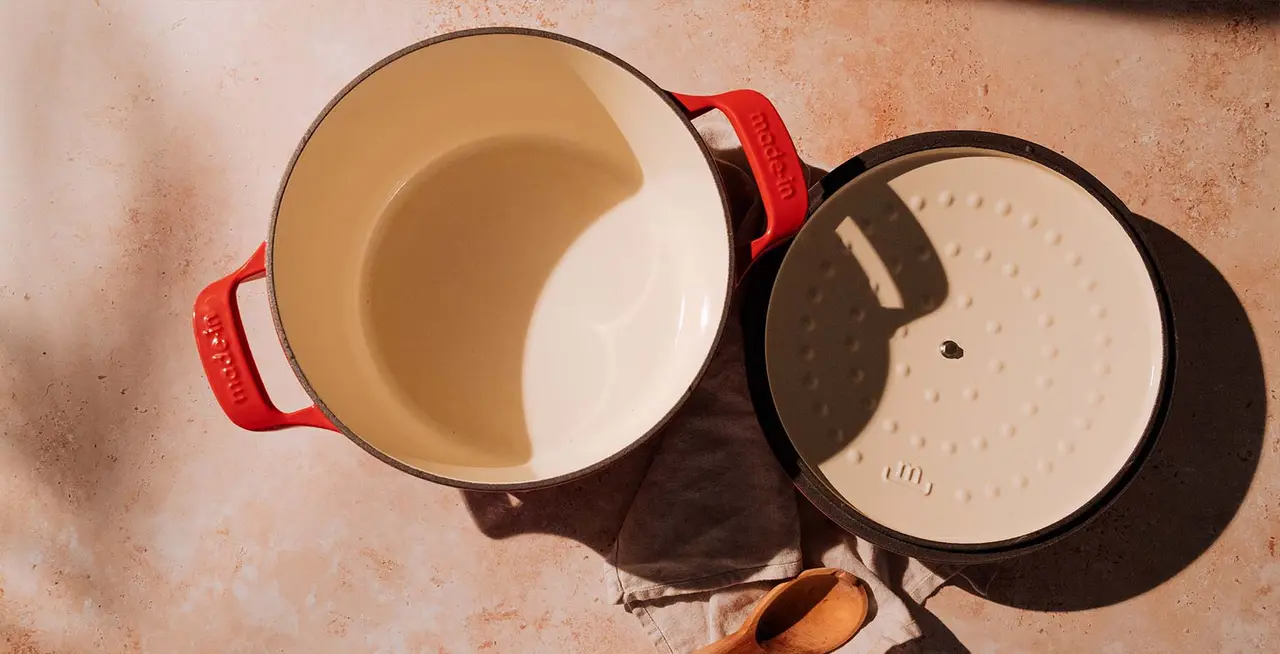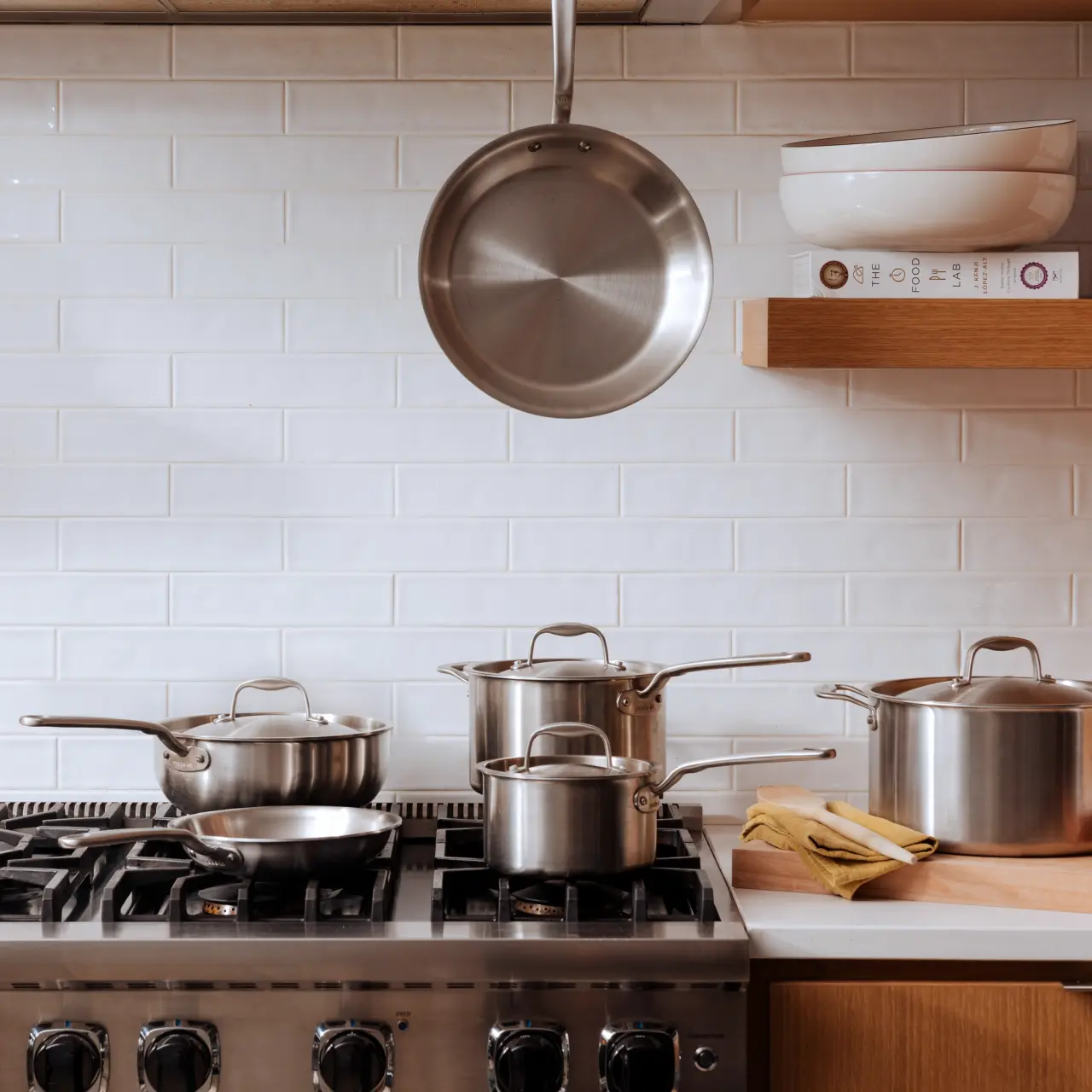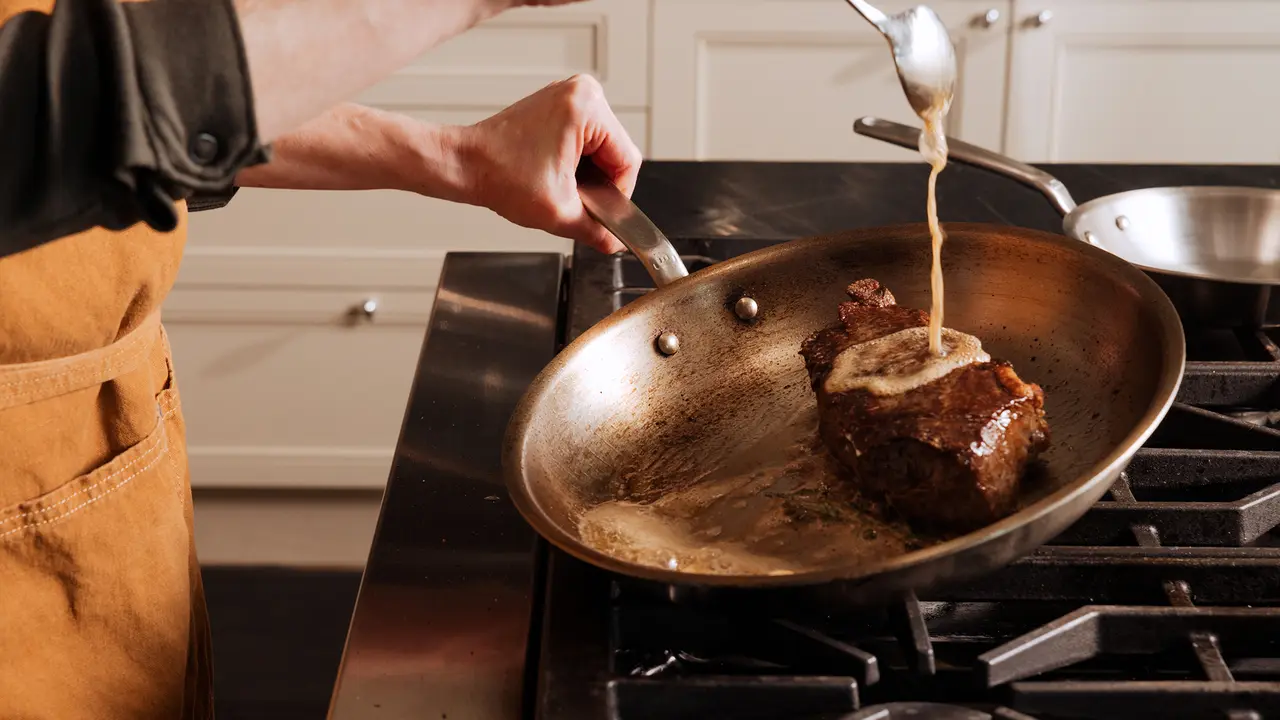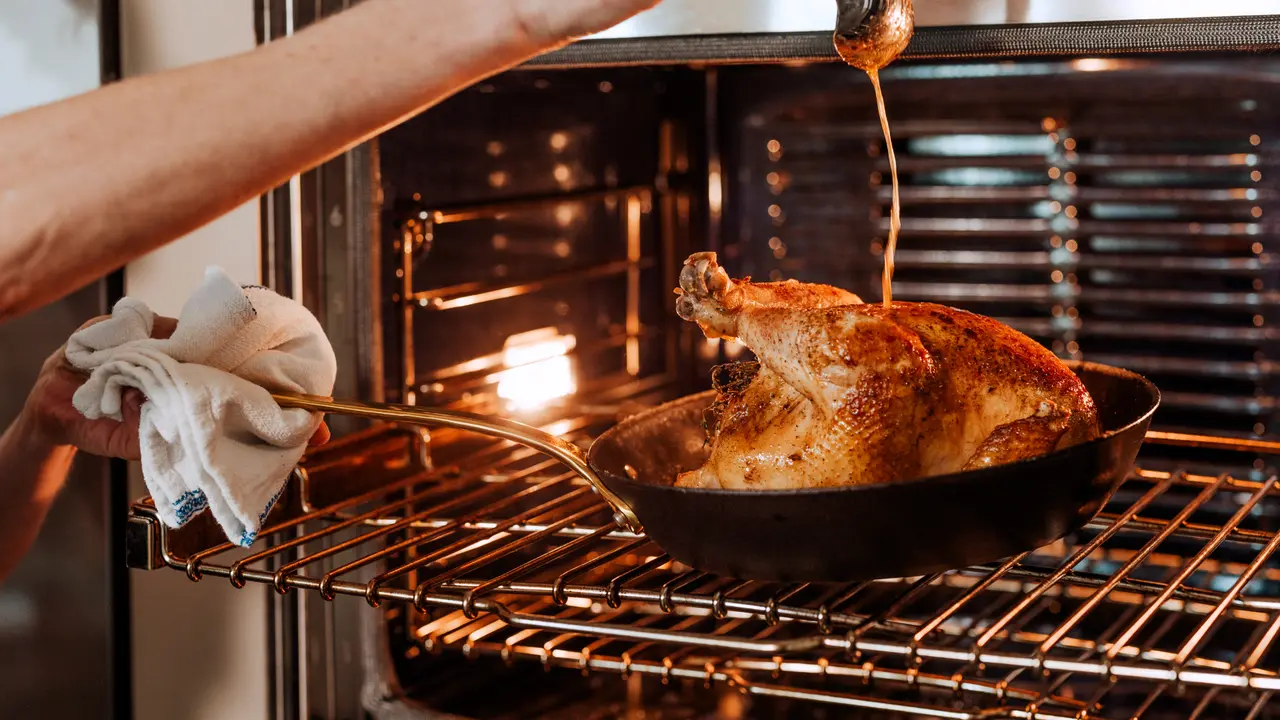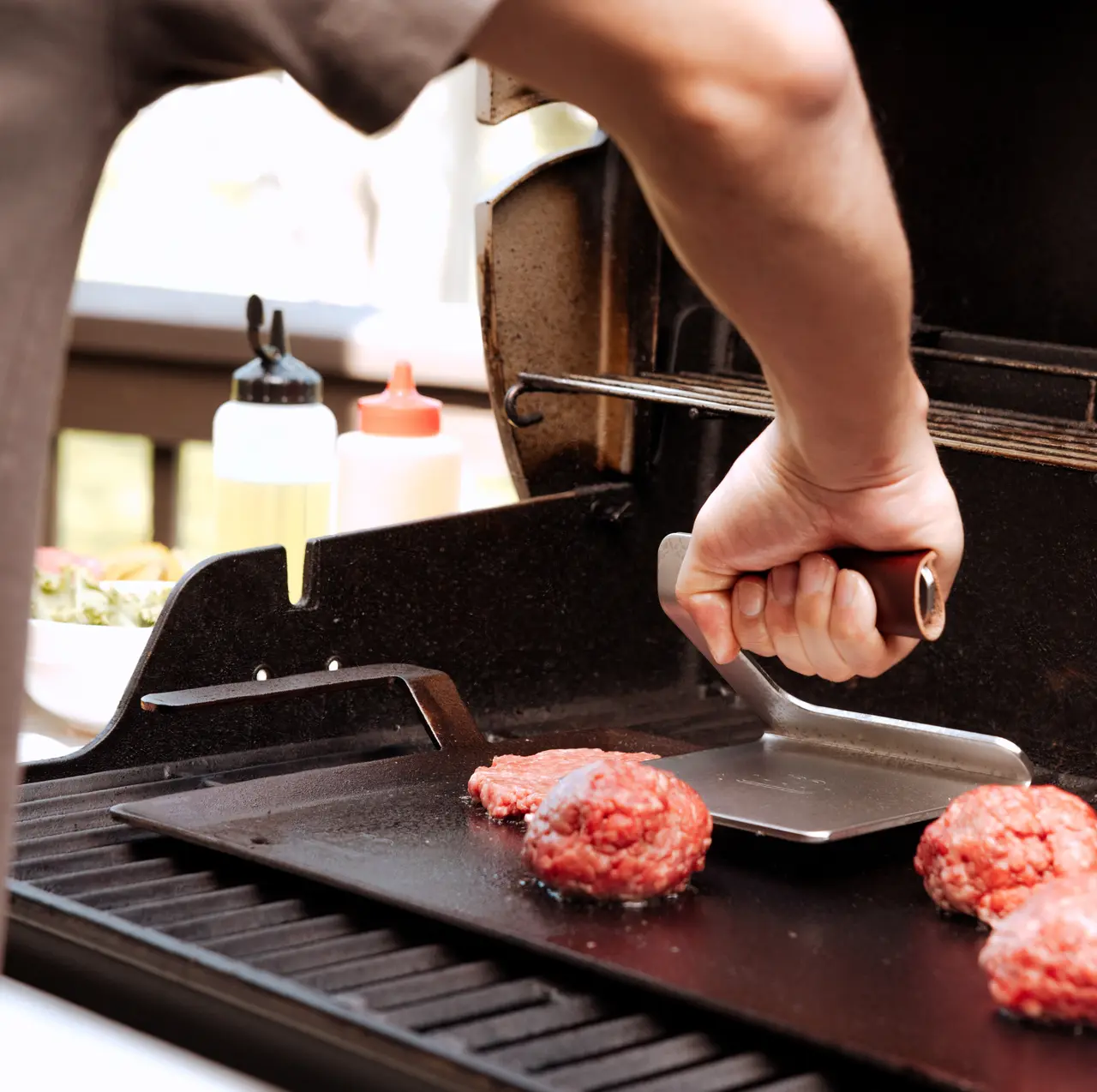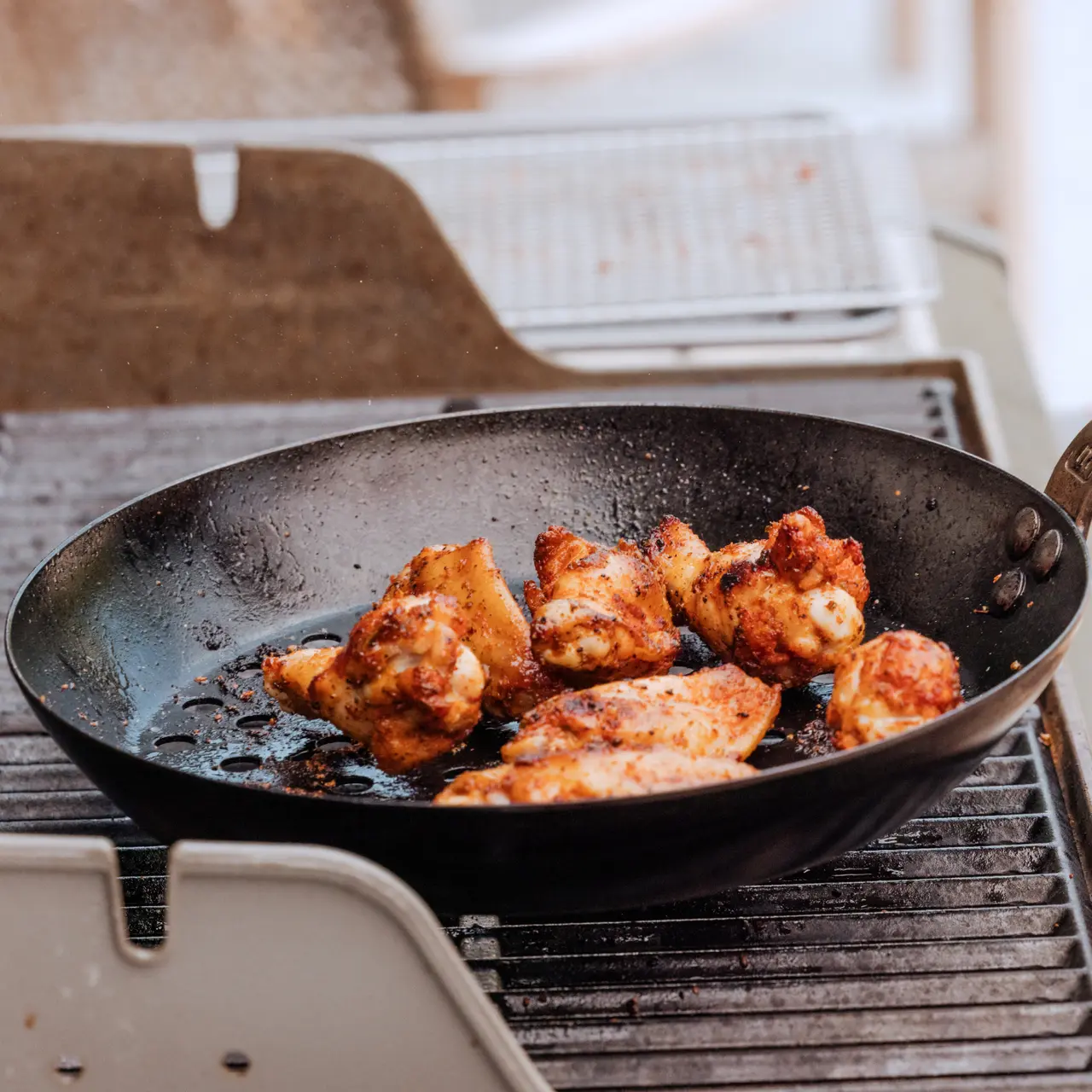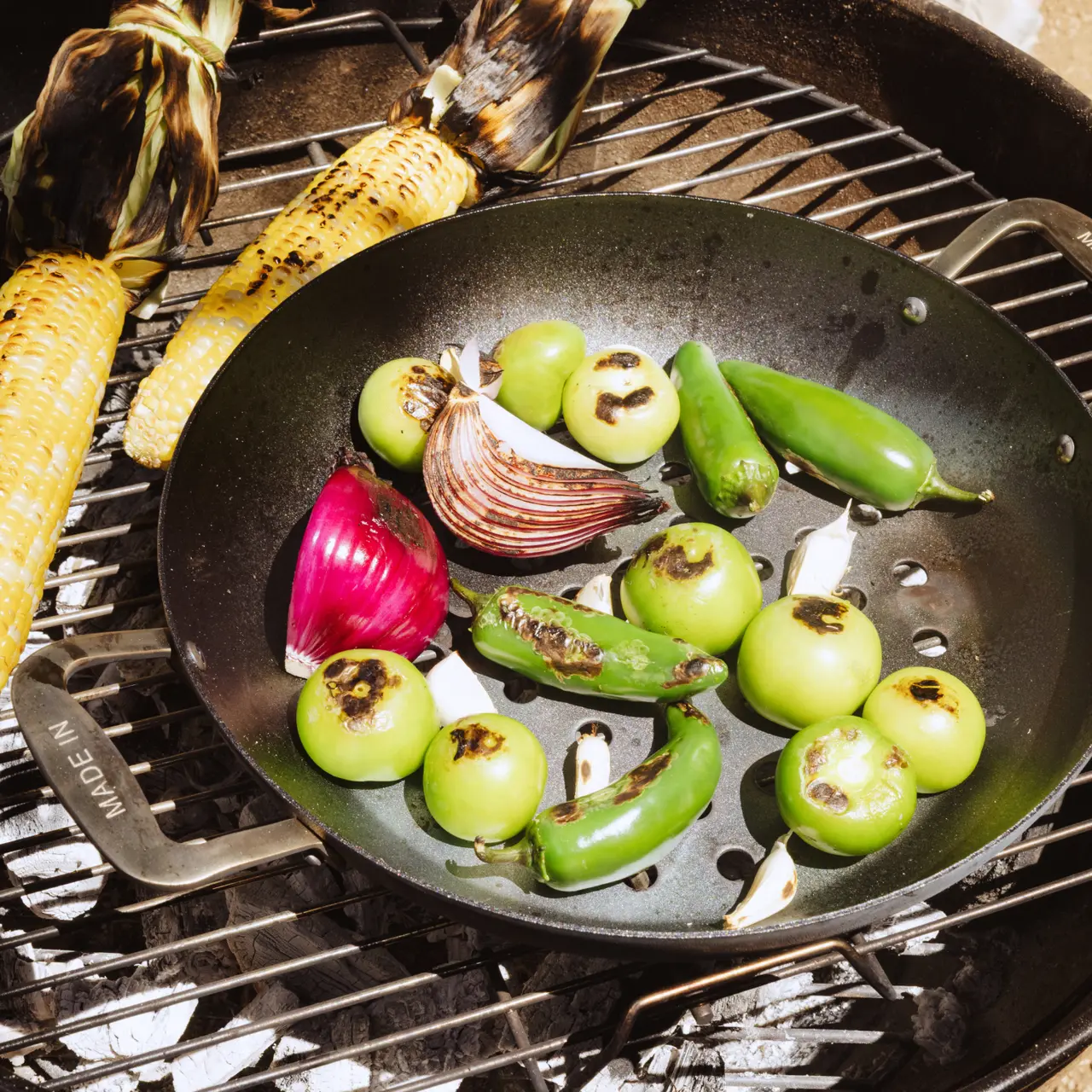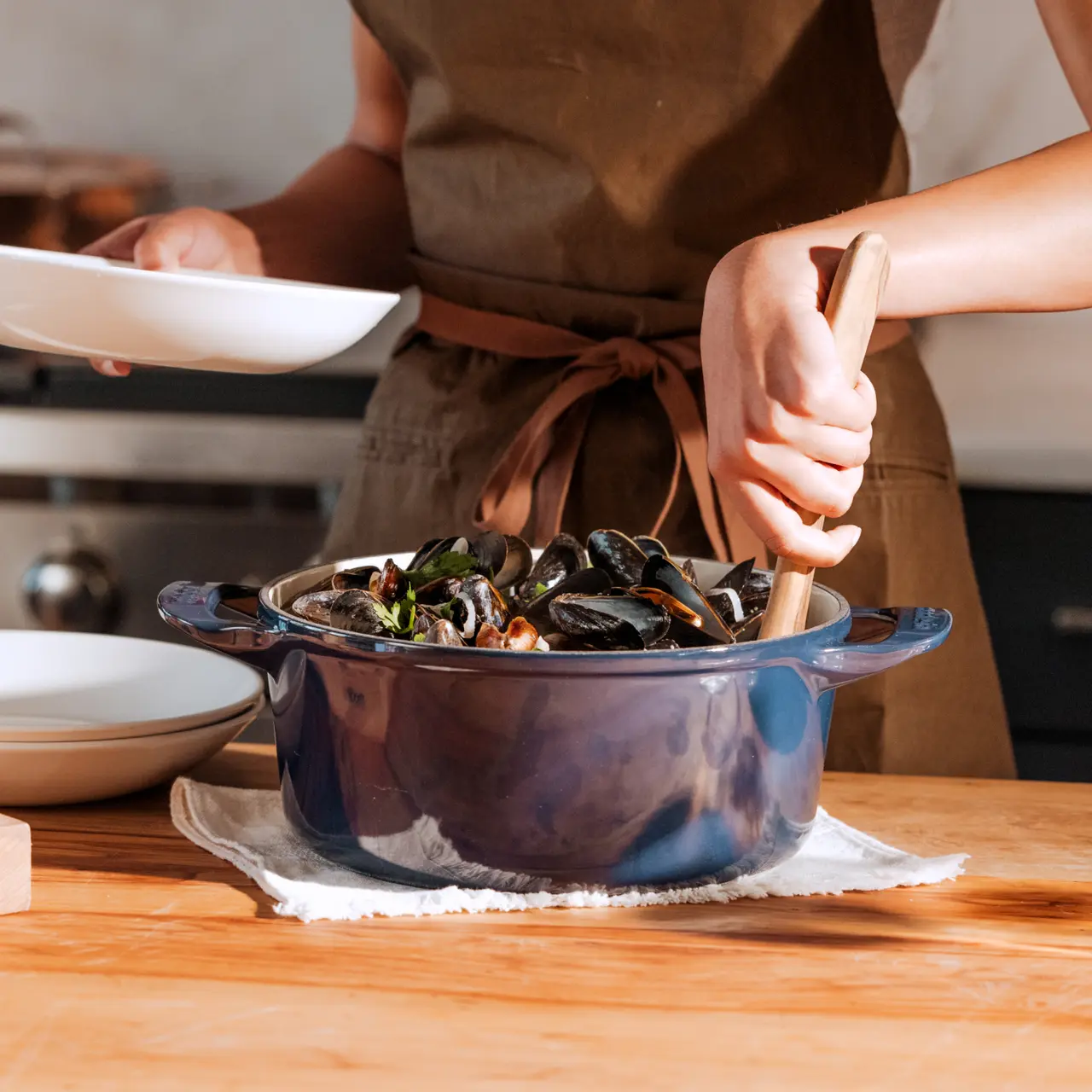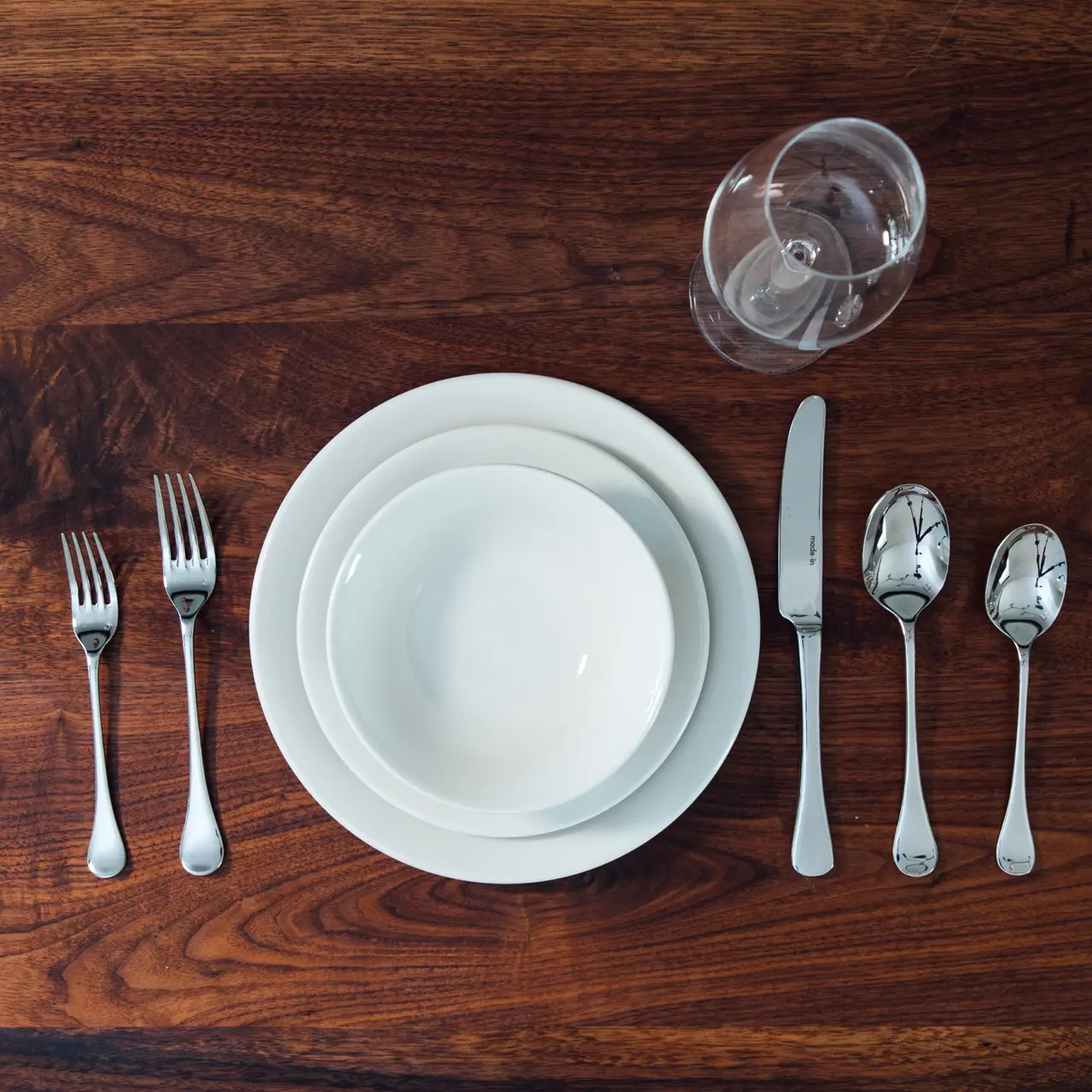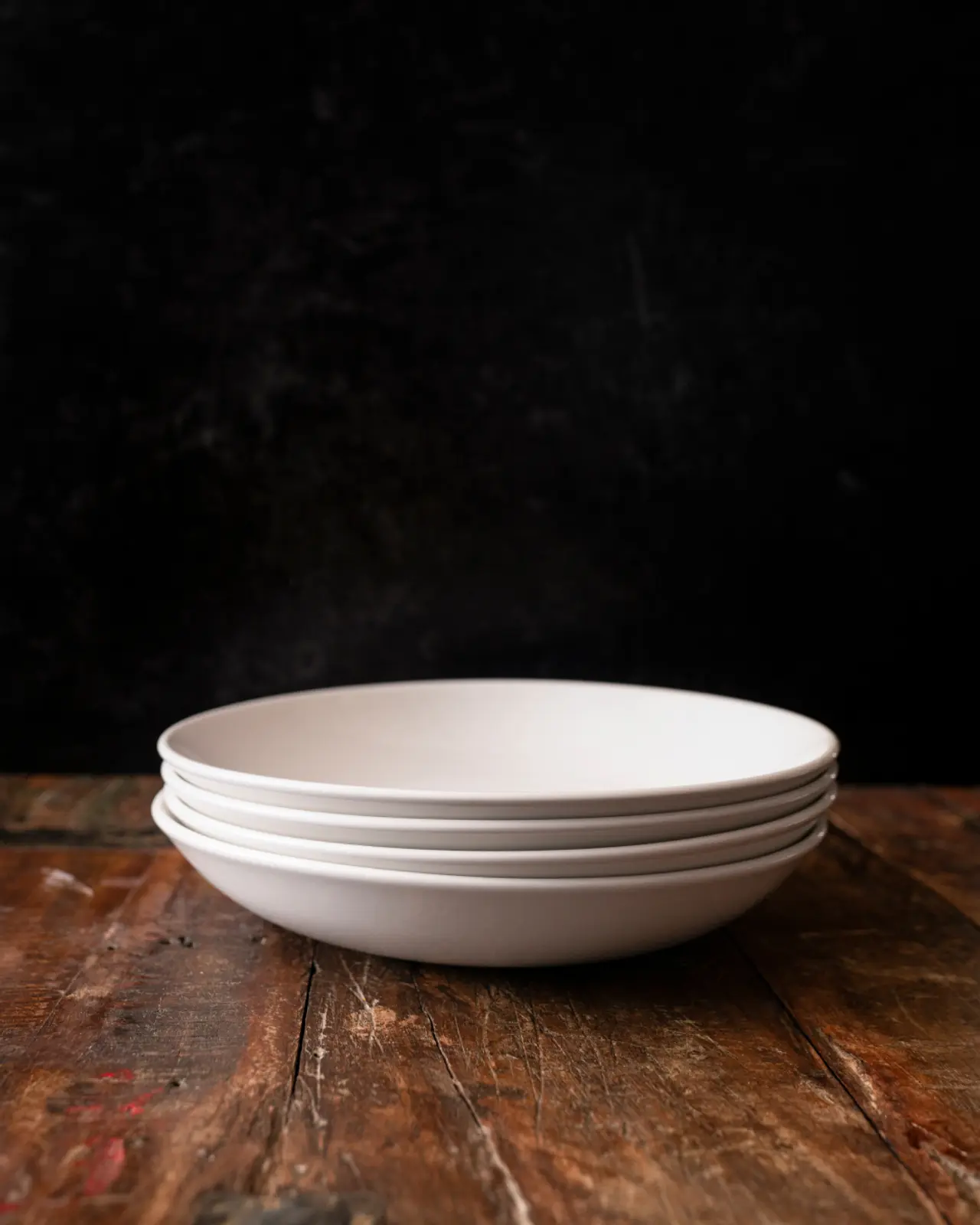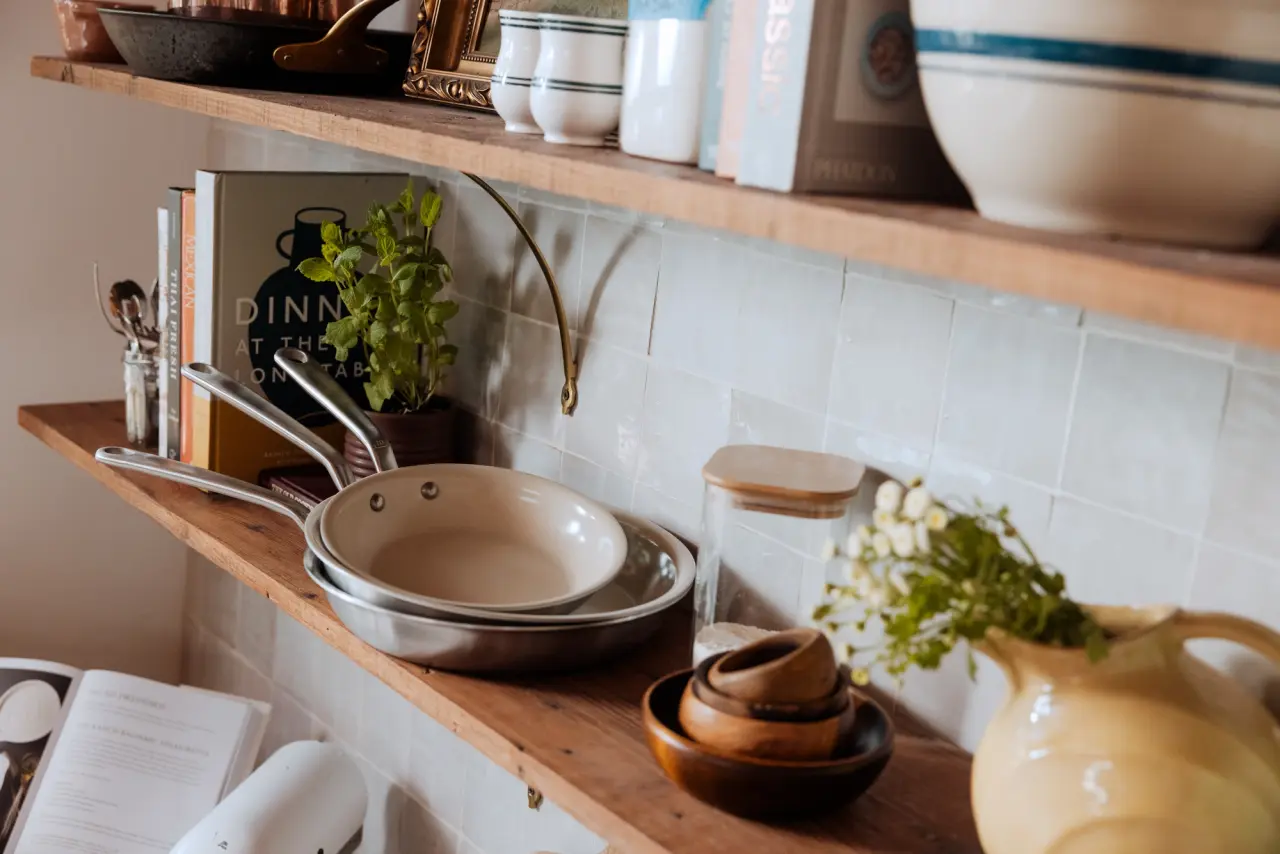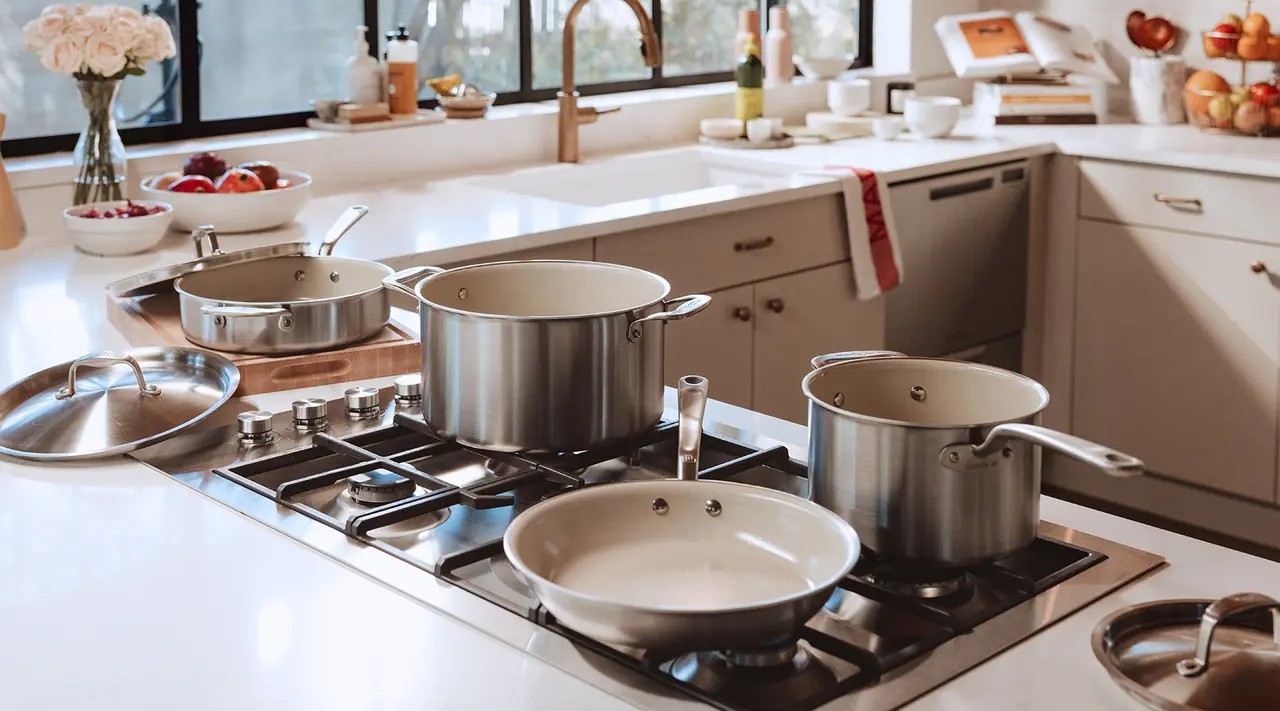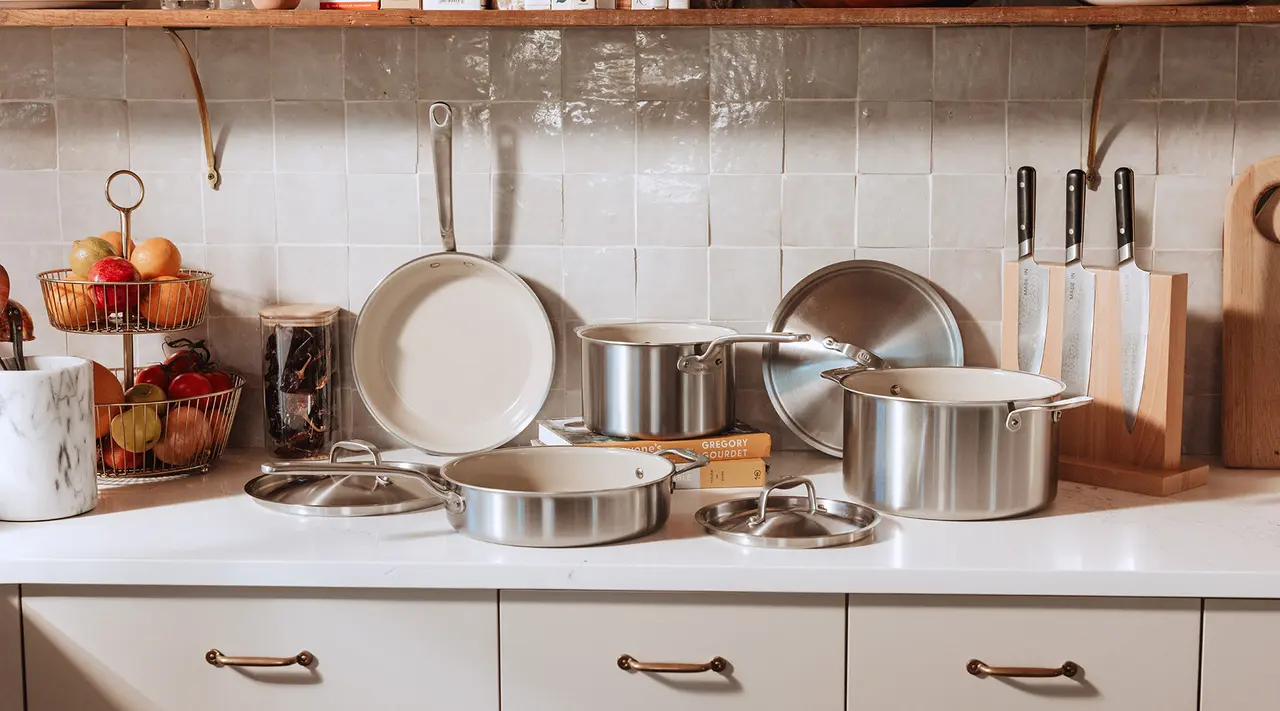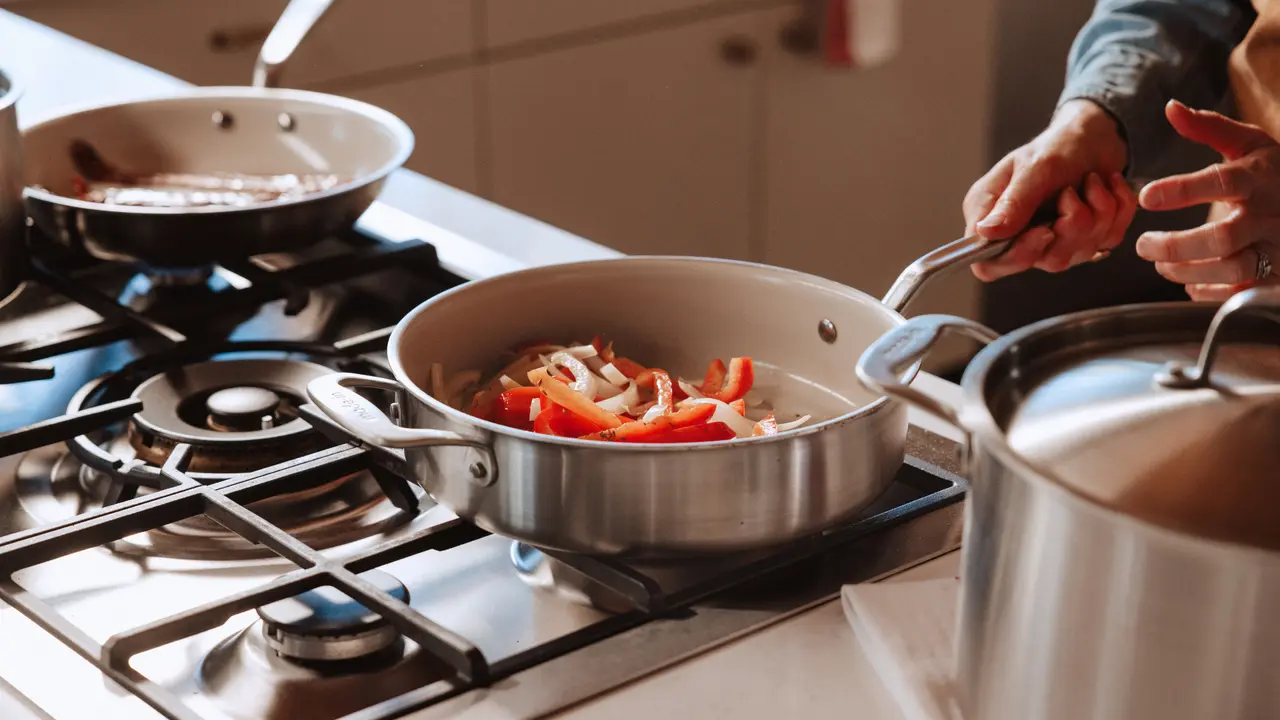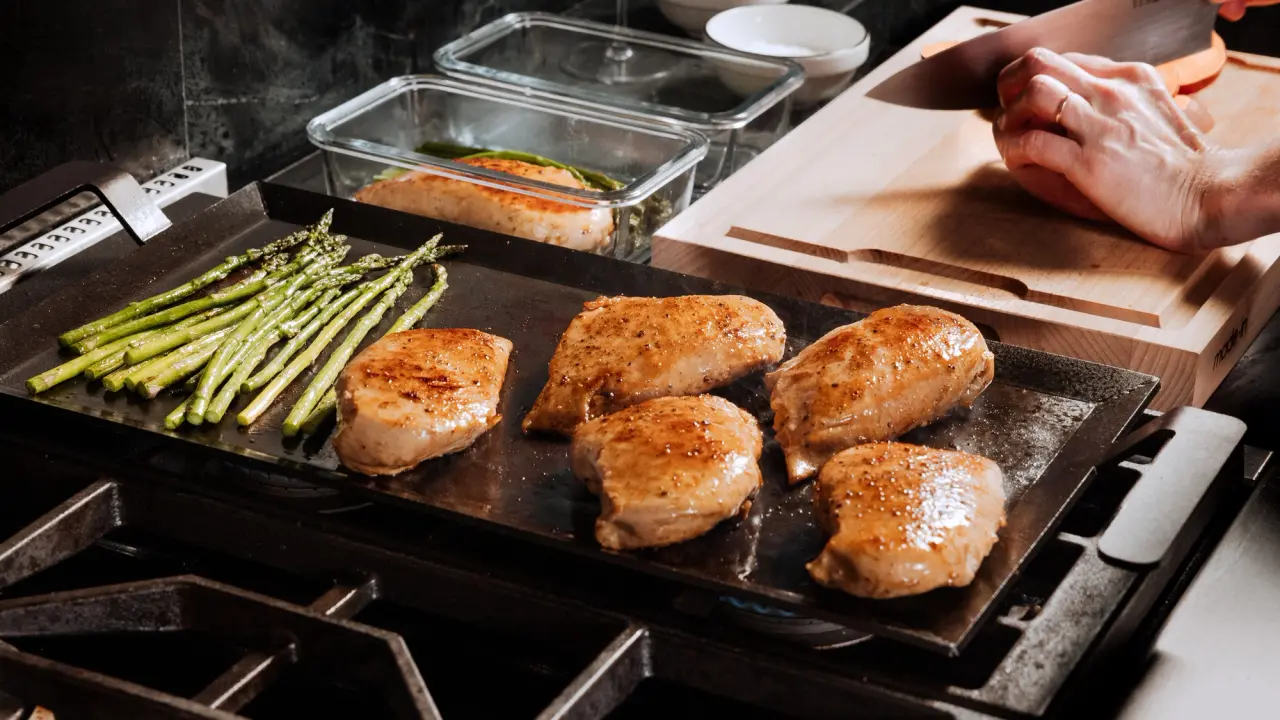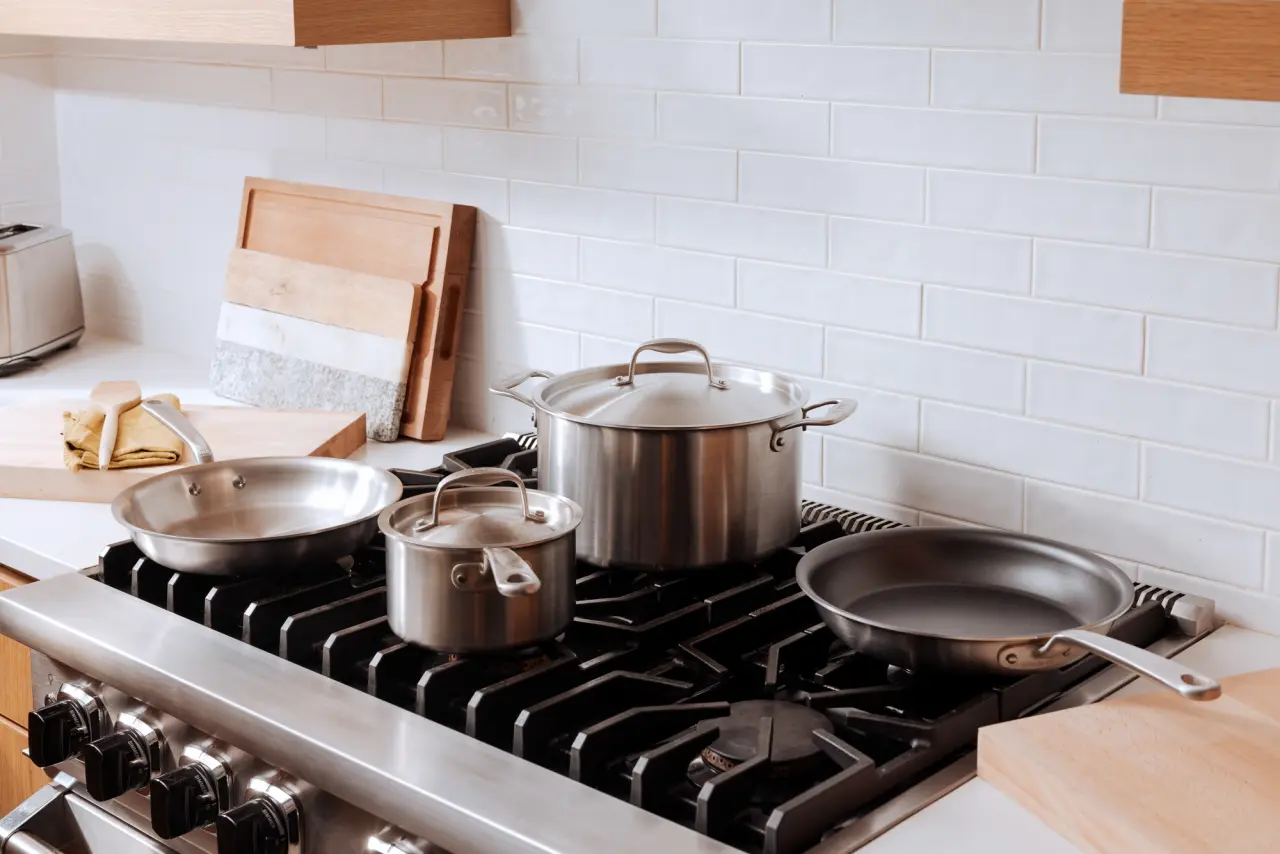Standbys of soup and stew season, a Dutch oven and a slow cooker are both great tools to have for a variety of cooking tasks. Both pieces of cookware thrive when cooking over low heat for a long period of time. Slow cooking is crucial for certain dishes like stews, braises, beans, and so on. But if you’re trying to choose just one piece of cookware, Dutch ovens are slightly more versatile than a slow cooker. We’ll dive into the ins and outs of both below.
What Is a Dutch Oven?
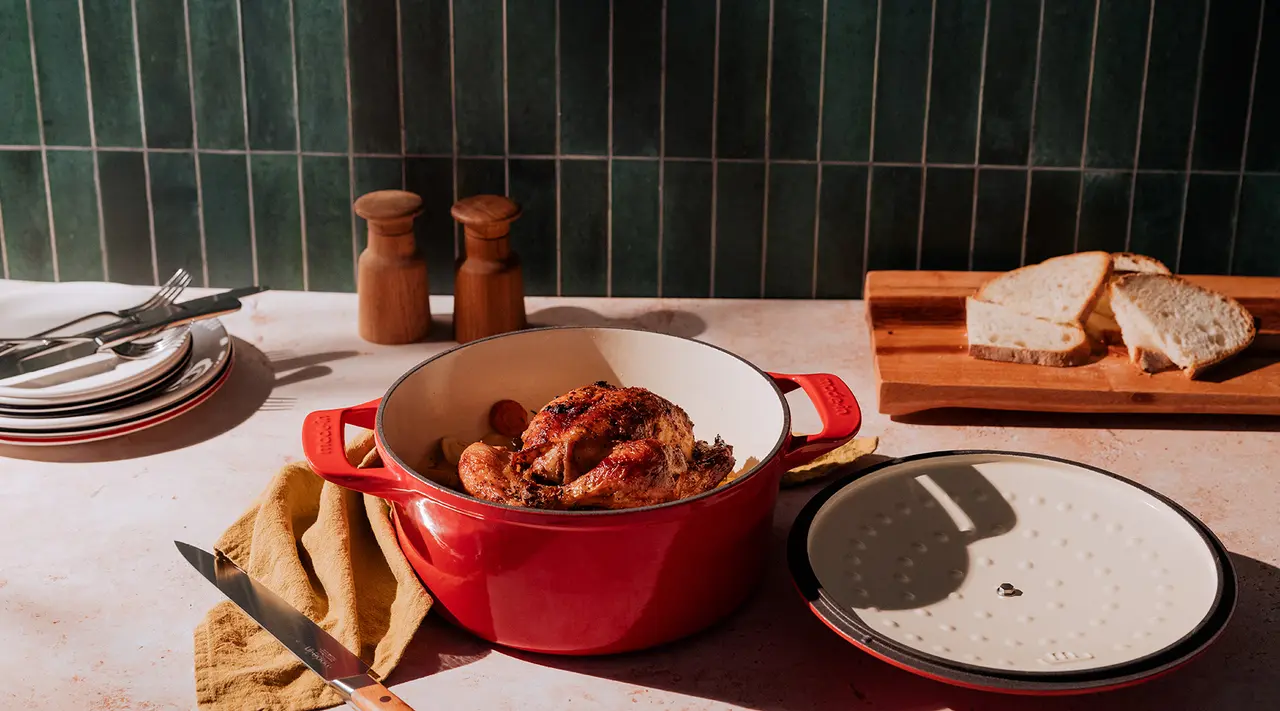
Most often made from enameled cast iron, though also found in unfinished cast iron, a Dutch oven is a heavy duty pot with a tight-fitting lid. They can be used on a variety of stove tops, including induction, and can also safely transition from the stove to oven. You can sear proteins, simmer soups, fry donuts, and bake breads, for starters. Any recipe that directs you to pull out a heavy-bottomed pot? That’s when you grab your Dutch oven.
Pros:
- A Dutch oven can handle a variety of cooking methods, including low simmers, higher heat sears, and deep frying.
- Since you can warm a Dutch oven over high heat, you’ll have an opportunity to impart more flavor in your meats and proteins when you sear and sauté ingredients.
- Dutch ovens can go in the oven (ours up to 580F) without worry of damaging them. This is ideal for stews and braises that you start on a stove and let finish in the oven.
- Dutch ovens are super durable and, with proper care, will last for generations.
Cons:
- When you use your Dutch oven on the stove, you do have to monitor and check in regularly to make sure things aren’t sticking, burning, or boiling over. (This is less of an issue when using it in an oven, but it’s still not quite so “set and forget” like a slow cooker.)
- Since Dutch ovens are made with cast iron, they are heavy and can be difficult to maneuver—especially when filled with food.
- Dutch ovens can be large—take our 5.5 QT and 7.5 QT pieces, for example. Like any piece of cookware, you’ll need to find a spot to store it.
What Is a Slow Cooker?
A slow cooker is an electronic appliance that sits on your countertop and cooks food slowly at a consistent level of heat. (Crock-Pot is one popular brand.) You can toss in all your ingredients for something like a chili or broth, press a button, and several hours later be rewarded with a finished dish.
Pros:
- Slow cookers offer convenient, hands-off cooking: put everything in, set it, forget it until it’s time to eat.
- Basic slow cookers are quite affordable (especially if you thrift one).
- Thanks to their hands-off style, slow cookers are ideal for busy schedules.
Cons:
- Slow cookers excel with soups, stews, broths, sauces, and similar dishes. But the versatility sort of stops there. Yes, there are infinite flavor combos and many types of cuisines that can be made in slow cookers, but you’re not going to bake a crusty loaf of bread in a slow cooker.
- Slow cookers do have high heat settings, but they’ll never get hot enough to sear or brown meat (which enhances flavor).
Comparing Key Features
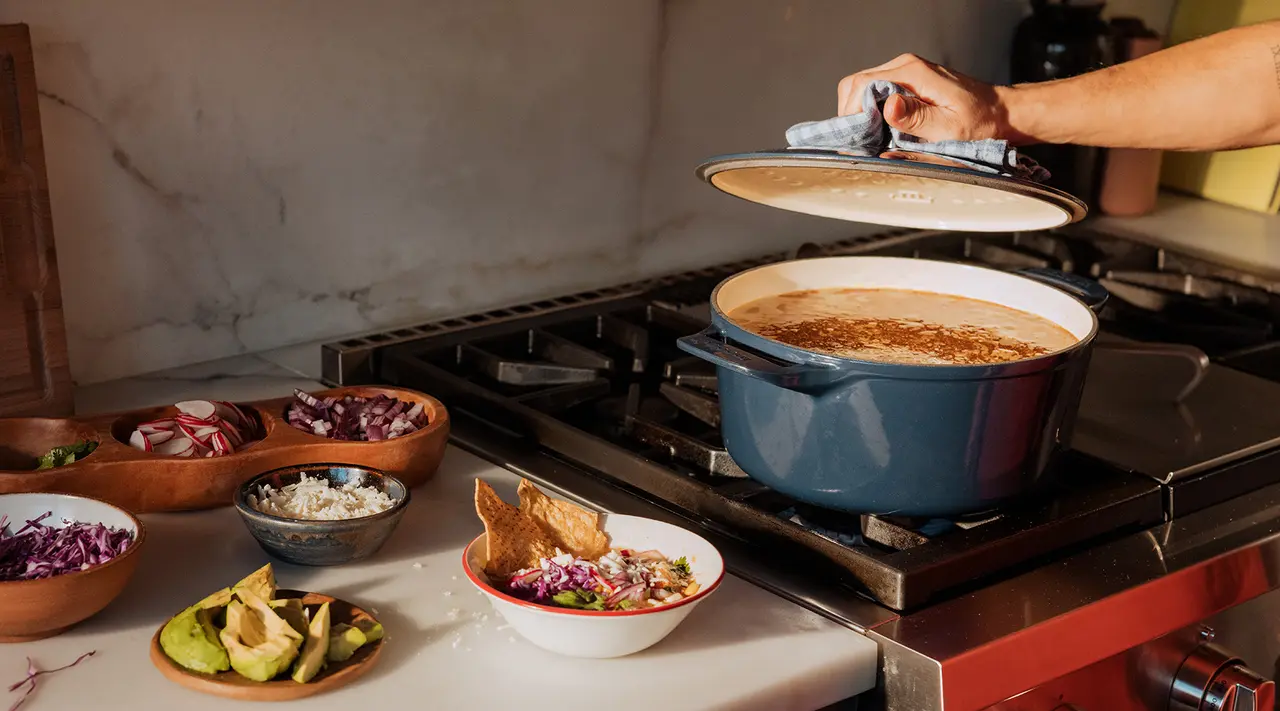
When you’re deciding whether to buy a Dutch oven or slow cooker, there are a few features to consider.
Heat Source
Dutch ovens go on the stove or in the oven and can handle low to high temperatures. Slow cookers are electric; while some slow cookers offer heat settings ranging from low to high, their heat is still relatively gentle compared to the higher heat potential of a stove or oven. Another consideration: in hotter months, it can be nice to cook food in a slow cooker, as it won’t heat up your kitchen like the stove or oven can.
Cooking Speed
With a Dutch oven, you can cook things slowly or quickly, depending on how much heat you’re using. With a slow cooker, you’re locking your food into taking more time over a low level of heat.
Versatility
If you’re looking for range, Dutch ovens have it: you can braise, fry, roast, sear, sauté, bake, simmer, and boil a Dutch oven. Slow cookers, on the other hand, are mainly good for saucy, brothy dishes like stews, soups, and slow-cooked meats.
Flavor
With a Dutch oven, you can sear protein to develop deep flavors (thanks to the Maillard reaction) in stews and soups. With a slow cooker there’s no searing, but the long cooking process can give you deep, slow-cooked flavors.
Hands-On vs. Hands-Off
Since you’re using a Dutch oven on a stove or in an oven, you do need to monitor it a little more and keep tabs on what’s going on. A slow cooker will give you that convenient “set and forget” feeling.
Which One Is Best for You?
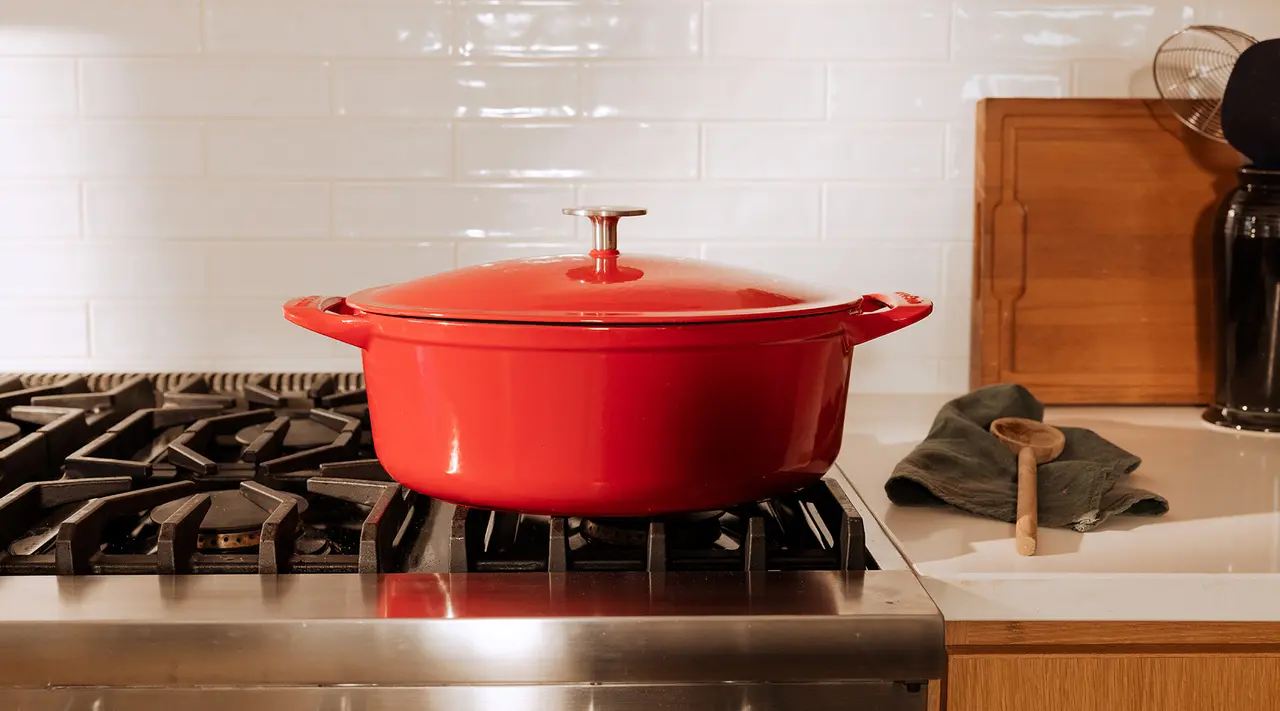
If you’re trying to decide between a Dutch oven versus slow cooker, there are a few factors to keep in mind. If you enjoy lots of versatility in terms of cooking styles and dishes, then go for a Dutch oven. The enameled cast iron pot is also best for cooks who value precision and control. A slow cooker is ideal for people with busy schedules, or those who just don’t like babysitting a pot of stew or soup.
Of course, going for both a Dutch oven and a slow cooker is always an option if you have room to store them—that way you’ll get the versatility of a Dutch oven and the convenience of a slow cooker, depending on what you need in the moment.
Can You Replace a Slow Cooker with a Dutch Oven (and Vice Versa)?
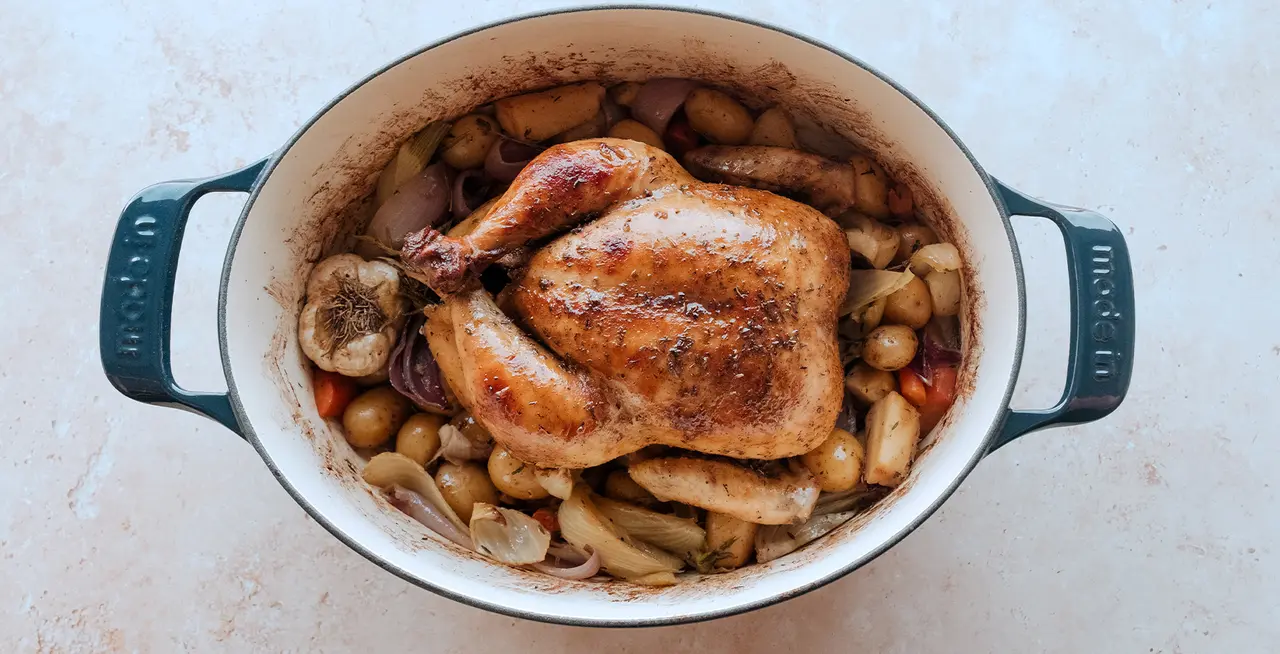
You can make some recipes in both a slow cooker and a Dutch oven, though the process differs. Soups, stews, beans, and braises are excellent in both.
Slow cookers generally operate at lower temperatures than Dutch ovens, so recipes will take longer in them than in a Dutch oven. And in general, a slow cooker traps more moisture than a Dutch oven, so if you’re converting a slow cooker recipe to a Dutch oven, you may need to add more liquid as your dish cooks. The opposite is true for changing a Dutch oven recipe to a slow cooker—you will likely reduce the liquid.
Ready to Cook?
You can use both a Dutch oven and a slow cooker to make tasty dishes all year long. If you’re trying to choose just one, then a Dutch oven offers more versatility than the hands-off slow cooker. Take a look at our Dutch oven collection to see which might fit in your kitchen.
